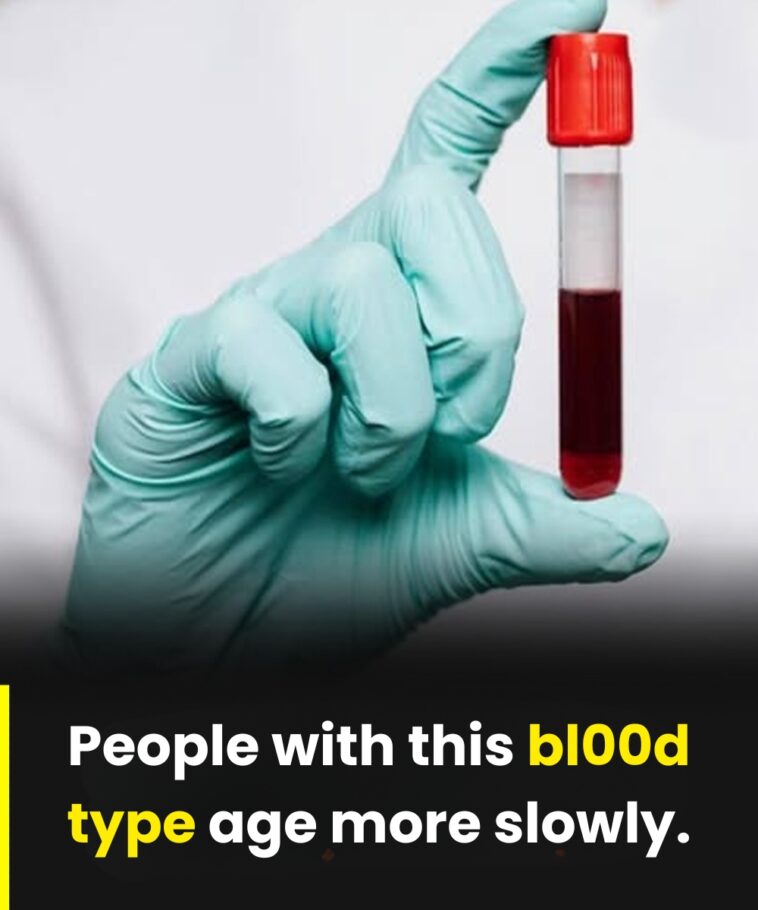
Blood Type and Aging: More Than Just Genetics
We often associate aging with lifestyle, diet, and genetics. But emerging research suggests that blood type may also influence the pace at which our bodies age. While traditionally considered relevant only for
transfusions or emergencies, blood type might play a role in cellular aging, immune resilience, and long-term health.
Understanding how your blood type interacts with your biology could provide insights into
healthy aging and longevity.
Blood Type O: Potential Anti-Aging Advantages
People with blood type O may experience natural health benefits that support slower physical decline over time:
- Lower risk of cardiovascular disease, including heart attacks and strokes.
- Reduced likelihood of certain cancers compared to other blood types.
- Efficient blood coagulation, promoting better circulation and oxygen delivery to tissues.
While blood type O may offer some
biological advantages, lifestyle choices remain critical. Regular exercise, a nutrient-rich diet, and stress management are essential to maximizing longevity.
Blood Types A, B, and AB: Greater Vulnerability to Inflammation
Research indicates that individuals with blood types A, B, or AB may face additional aging challenges:
- Higher chronic inflammation, a key contributor to age-related diseases.
- Slightly elevated risks of https://e3362fe1eb975d5eb4c335921c9502fb.safeframe.googlesyndication.com/safeframe/1-0-45/html/container.htmlhigh blood pressure and certain neurological conditions.
- A greater need for preventive health strategies to maintain vitality.
These blood types benefit from proactive lifestyle adjustments, including anti-inflammatory diets, regular health screenings, and stress reduction techniques
.
The Role of Oxidative Stress and Immunity
Blood type may also influence oxidative stress, a cellular process that accelerates tissue aging:
- Some blood types’ cells appear more resistant to oxidative damage, slowing organ and tissue deterioration.
- Immune system function varies with blood type, affecting susceptibility to infections and chronic illness.
These differences suggest that biological resilience to the effects of aging may be partially determined by blood type.
Lifestyle Choices Still Rule
Despite blood type variations, experts agree: no one is immune to aging. The strongest determinants of longevity remain healthy habits and lifestyle choices.
Key pillars of healthy aging include:
- Balanced nutrition, rich in antioxidants and anti-inflammatory foods.
- Regular physical activity, including strength training, walking, or yoga.
- Sufficient sleep, 7–8 hours per night.
- Effective stress management, through mindfulness, meditation, or hobbies.https://e3362fe1eb975d5eb4c335921c9502fb.safeframe.googlesyndication.com/safeframe/1-0-45/html/container.html
Practical Tips for Slowing the Aging Process
Regardless of your blood type, these strategies can help maintain youthful energy and wellness:
- Eat antioxidant-rich foods: berries, leafy greens, green tea, and turmeric combat free radicals.https://e3362fe1eb975d5eb4c335921c9502fb.safeframe.googlesyndication.com/safeframe/1-0-45/html/container.html
- Stay active: walking, swimming, yoga, or resistance training supports cardiovascular and muscular health.
- Avoid harmful habits: limit alcohol, avoid smoking, and reduce processed food intake.
- Schedule routine checkupshttps://e3362fe1eb975d5eb4c335921c9502fb.safeframe.googlesyndication.com/safeframe/1-0-45/html/container.html: monitor blood pressure, cholesterol, and other age-related markers regularly.
Bottom Line
While blood type may influence aging patterns, it’s only one piece of the puzzle. A healthy lifestyle, preventive care, and mindful choices
remain the most powerful tools for longevity.
Your blood type may set the stage, but how you live determines the performance.